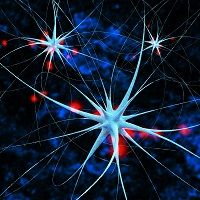Study: Memories Are Built One Neuron at a Time
When humans form new memories, changes happen at the individual neuron level, a UK team has shown.

Centre for Systems Neuroscience, University of Leicester, Leicester, UK.
When humans form new memories, changes happen at the individual neuron level. Researchers recorded single neurons as patients learned contextual associations. Even after single presentations, neurons changed their firing. Thanks to the research of Matias J. Ison, PhD, and colleagues, which was published in volume 87, issue 1 of Neuron. we now have a better understanding of the mechanism that underlies the formation of memories. Ison is affiliated with the
Although researchers have established that the medial temporal lobe (MTL) is important for the creation of episodic memories and to encode associations, human studies had not before addressed how episodic memories are formed at the level of a single neuron, nor how natural stimuli cause the “rapid encoding of new episodic memories.”
In this study, the team explored how individual cells changed in order to encode new associations. They showed pairs of unrelated images to neurosurgery patients. Each pair consisted of an image of a person and the second image was of a place. This was to mimic the episodic memory of meeting a person in a particular place. As the patients made these associations, the researchers recorded individual neurons in the MTL.
The participants in the study consisted of 14 patients with epilepsy that did not respond to pharmaceutical treatment, aged 18 to 53 years. Chronic depth electrodes were implanted for 7-10 days in order for neurologists to determine seizure focus and whether or not surgical resection was an option. Patients volunteered to participate.
The pairs of images were shown to the patients on a laptop while they were sitting in bed. The patients were asked to respond by pressing a button if the image showed a person or not. The researchers recorded the firing of the responsive neurons as the patients looked at the images, then later analyzed the results according to various sets of parameters and indices.
Unfortunately, they noted,, the way that this study was carried out precluded long-term assessment of how the neurons behaved. However, the researchers believe that the initial encoding of associations could be either consolidated over time, or may disappear. Episodic memories are more complex than contextual associations, but this fundamental mechanism at the individual neuron level could well support episodic memory formations.